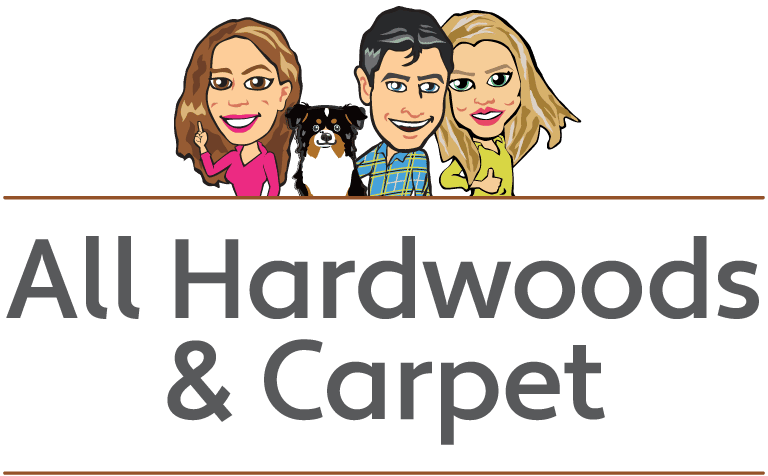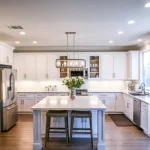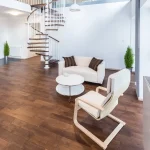
The Differences Between Solid Hardwood and Engineered Hardwood
When choosing the right flooring for your home, two popular options often come to mind: hardwood and engineered hardwood. While both types offer beauty, durability, and warmth, there are significant differences that can influence your decision. This guide will help you determine which flooring type suits your home best, whether you’re in Norwalk, Tarrytown, Stamford, White Plains, or the surrounding areas.
What is Hardwood Flooring?
Hardwood flooring is made from solid pieces of natural wood, typically oak, maple, cherry, or walnut. It’s renowned for its classic look, long lifespan, and the ability to be sanded and refinished multiple times. With proper maintenance, hardwood can last for decades, adding value to your home.
Pros of Hardwood Flooring
- Durability: If well-maintained, hardwood can last 50-100 years.
- Timeless Appeal: The natural beauty of solid wood adds warmth and elegance.
- Refinishing: Solid hardwood can be sanded and refinished several times, allowing homeowners to restore its look or change the color over time.
- Hypoallergenic: Hardwood flooring doesn’t trap dust or allergens, making it a better choice for those with allergies.
Cons of Hardwood Flooring
- Cost: Hardwood tends to be more expensive than engineered hardwood.
- Moisture Sensitivity: Hardwood is prone to warping or expanding in areas with high humidity or moisture, such as basements or bathrooms.
- Installation Time: Hardwood installation is more labor-intensive and can take longer to complete.
What is Engineered Hardwood Flooring?
Engineered hardwood is constructed from multiple layers of wood, with a top layer of real hardwood and a core made of plywood or high-density fiberboard (HDF). This design makes it more resistant to changes in temperature and humidity, making it a popular choice for areas prone to moisture.
Pros of Engineered Hardwood Flooring
- Stability: Engineered hardwood is more stable than solid hardwood, making it less prone to warping in humid environments.
- Versatility: It can be installed in areas where solid hardwood isn’t ideal, such as basements or over radiant heating systems.
- Cost-Effective: Generally, engineered hardwood is more affordable than solid hardwood, especially in exotic wood varieties.
- Easier Installation: Engineered hardwood can be nailed, glued, or floated over existing floors, making it a quicker and often less expensive installation.
Cons of Engineered Hardwood Flooring
- Limited Refinishing: Unlike solid hardwood, engineered hardwood can only be refinished a few times, depending on the thickness of the top wood layer.
- Shorter Lifespan: While durable, engineered hardwood may not last as long as solid hardwood, especially in high-traffic areas.
- Appearance: Some homeowners feel that engineered hardwood doesn’t offer the same “authentic” feel as solid hardwood.
Comparing Durability
If you’re looking for long-term durability and the option to change the look of your flooring, solid hardwood is the better choice. However, engineered hardwood can offer a solid alternative for areas like basements, bathrooms, or kitchens, where moisture is a concern.
Installation Process
Solid hardwood generally requires professional installation and can be more labor-intensive. Engineered hardwood, on the other hand, offers greater flexibility in installation methods, making it more suitable for DIY enthusiasts.
Cost Considerations
While solid hardwood often carries a higher upfront cost, it can be a worthwhile investment if you plan to stay in your home for a long time. Engineered hardwood, while less expensive initially, may need replacing sooner, especially in high-traffic areas.
Which Type of Hardwood Is Right for You?
The decision between solid and engineered hardwood often depends on your specific needs, budget, and the location of the flooring within your home.
- If you want a long-lasting, traditional look: Opt for solid hardwood, especially in living rooms, dining rooms, or bedrooms.
- If you need versatile, moisture-resistant flooring: Engineered hardwood is an excellent choice for basements, kitchens, or bathrooms.
- If you’re on a budget: Engineered hardwood can offer a more cost-effective solution while still maintaining the look of real wood.
Where to Find Hardwood Flooring Near You
If you’re located in Norwalk, Tarrytown, Stamford, or White Plains, All Hardwoods & Carpet is your local expert for all your flooring needs. Whether you’re still unsure about which type of hardwood is best or are ready for installation, our team is here to help!
Why Choose All Hardwoods & Carpet?
At All Hardwoods & Carpet, we offer a wide selection of both solid and engineered hardwood flooring. With decades of experience serving the Norwalk and Tarrytown areas, we pride ourselves on providing top-quality products, expert installation, and exceptional customer service. We are here to guide you in choosing the right flooring for your home, ensuring it fits your lifestyle, budget, and aesthetic preferences.
Get in Touch
If you have any questions about solid or engineered hardwood, give us a call at (203) 913-4209 (Norwalk) or (914) 415-5582 (Tarrytown). You can also visit our website at hardwoodfloorsllc.com for more information or to request a free consultation.
Address:
Norwalk Location: 123 Main St, Norwalk, CT
Tarrytown Location: 456 Broadway Ave, Tarrytown, NY





